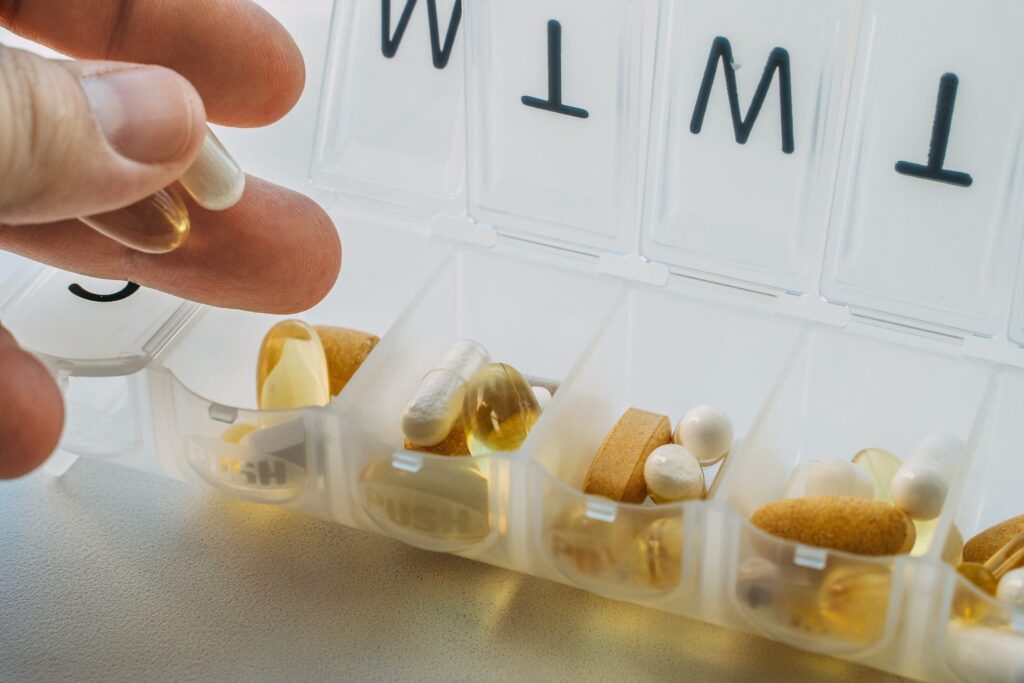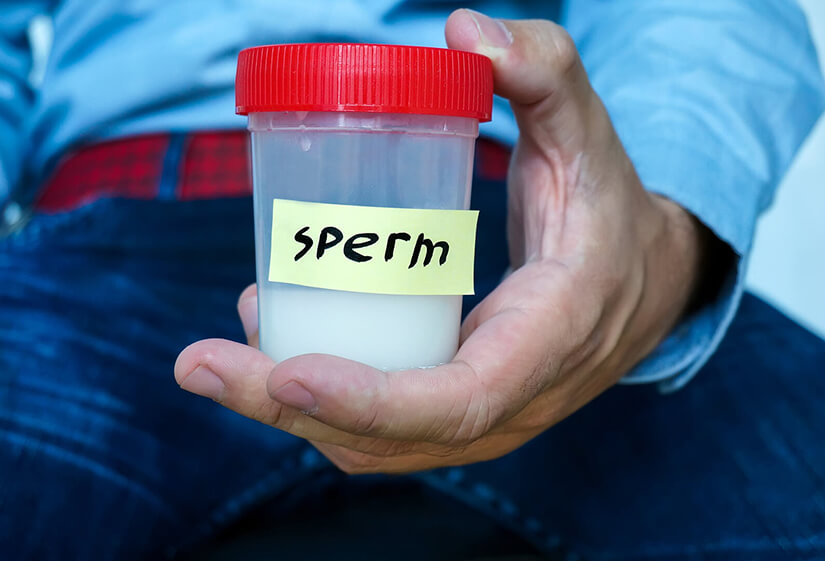Testosterone, often dubbed the “male hormone,” plays a crucial role in male health, influencing everything from muscle mass and mood to libido and energy levels. While testosterone replacement therapy (TRT) has been a game-changer for many men with low testosterone levels, there’s growing concern about its impact on fertility, specifically sperm count.
In this guide, we will be examining the relationship between testosterone supplements and sperm count, providing a comprehensive overview of what you need to know.
What is Testosterone?
Testosterone is a steroid hormone produced primarily in the testes and, to a lesser extent, in the adrenal glands. It is responsible for the development of male sexual characteristics, such as a deeper voice, facial hair, and increased muscle mass. It also plays a vital role in maintaining libido, bone density, and red blood cell production.
Recommended: Can Taking Testosterone Make You Sterile?

The Importance of Testosterone in Spermatogenesis
Spermatogenesis is the process of sperm production, and testosterone is essential for this process. Within the testes, testosterone stimulates the Sertoli cells, which are crucial for nurturing and developing sperm cells. Adequate testosterone levels ensure a healthy sperm production cycle, which typically spans around 64 days.
How Testosterone Supplements Cause Low Sperm Count
Testosterone supplements come in various forms, including injections, gels, patches, and pills. These supplements aim to restore normal testosterone levels in men suffering from hypogonadism, a condition characterized by low testosterone production. While this can alleviate symptoms like fatigue, depression, and decreased libido, it can also have unintended consequences on fertility.
When you introduce exogenous testosterone (from supplements) into your body, it disrupts the natural hormone production process. The hypothalamus and pituitary gland regulate testosterone levels through a feedback loop. When they detect high levels of testosterone from supplements, they signal the testes to reduce or stop producing testosterone and other essential hormones like follicle-stimulating hormone (FSH) and luteinizing hormone (LH). Both FSH and LH are critical for stimulating spermatogenesis.
Recommended: Does Testosterone Replacement Cause Infertility?
Multiple studies have shown a clear link between testosterone supplementation and reduced sperm production. For example, a study published in the Journal of Clinical Endocrinology & Metabolism found that men undergoing TRT had significantly lower sperm counts compared to those not on TRT.
Another study highlighted that even short-term use of testosterone supplements can lead to a marked decrease in sperm concentration.
Is Low Sperm Count Due to Testosterone Supplementation Reversible?
The impact of testosterone supplements on sperm count is often reversible, but this largely depends on the duration and dosage of the therapy. Men who discontinue testosterone supplementation typically see a gradual return to normal sperm production, although this process can take several months. In some cases, especially with prolonged use, the effects may be longer-lasting or even permanent.

Strategies to Preserve Fertility During Testosterone Therapy
For men who need testosterone therapy but are concerned about their fertility, there are several strategies to consider:
- HCG Injections: Human chorionic gonadotropin (HCG) can stimulate the testes to produce testosterone and sperm even during TRT.
- Selective Estrogen Receptor Modulators (SERMs): Medications like clomiphene citrate can increase the production of endogenous testosterone without suppressing spermatogenesis.
- Testosterone Alternatives: Natural ways to boost testosterone, such as lifestyle changes, can be effective and have fewer risks to fertility.
Recommended: 3 Human Hormones Most Directly Involved in Sexual Reproduction
Alternative Ways To Manage Low Testosterone
1. Lifestyle Modifications
Simple lifestyle changes can naturally boost testosterone levels. Regular exercise, especially resistance training, can increase testosterone production.
A balanced diet rich in zinc, vitamin D, and healthy fats also supports hormone health. Reducing stress through mindfulness practices and ensuring adequate sleep can further enhance testosterone levels.
2. Natural Supplements
Certain natural supplements can help boost testosterone levels without the adverse effects on sperm count. These include:
- Ashwagandha: An adaptogenic herb that can increase testosterone and improve sperm quality.
- Fenugreek: Known to boost libido and testosterone levels.
- D-Aspartic Acid: An amino acid that can elevate testosterone levels.

When To Consult Your Doctor
Before starting any form of testosterone supplementation, it’s crucial to consult with a healthcare professional. They can provide personalized advice based on your specific health needs and fertility goals. Monitoring hormone levels regularly can help mitigate the adverse effects on sperm count.
Recommended: What Causes Erectile Dysfunction in Your 50s?
If you’re considering testosterone therapy and wish to preserve your fertility, discuss options like sperm banking before starting treatment. This proactive step ensures you have viable sperm stored for future use.
Conclusion
Testosterone supplements can significantly improve the quality of life for men with low testosterone levels, but they come with potential risks to fertility. The evidence clearly indicates that exogenous testosterone can lead to a decrease in sperm production, often through a suppressive effect on the body’s natural hormone regulation system.
However, with proper medical guidance and consideration of alternative treatments, it’s possible to manage low testosterone while preserving fertility. Always consult a healthcare professional to tailor the best approach for your individual needs.
Understanding the delicate balance between testosterone supplementation and sperm count can empower men to make informed decisions about their health and fertility.
